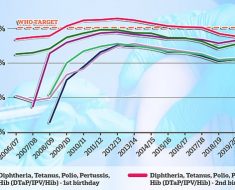When the Centers for Medicare and Medicaid Services (CMS) announced controversial policies inviting states to establish work requirements as a condition to receive Medicaid, many in the medical community opposed it. Groups like the American Academy of Family Physicians and the American Psychiatric Association said the policies would create considerable health risks and financial harm among vulnerable populations and be at odds with efforts to address some of the country’s biggest public health issues, like the opioid crisis.
If these measures continue to be approved – as is the case in Kentucky, Indiana, and Arkansas – CMS should act to minimize the potential harms they could cause to Medicaid recipients, two Penn Medicine experts in law and ethics argue in a new JAMA Viewpoint published this week, that lays out basic safeguards to help guide the states. “Promoting health, after all,” the authors note, “is the goal of Medicaid.”
“Not only do they raise ethical concerns, but policies that proponents say promote personal responsibility have a spotty record. And we know that losing insurance, which many could face, leads to significant harms to health, especially in lower-income individuals with chronic conditions,” said Harald Schmidt, PhD, an assistant professor of Medical Ethics and Health Policy in the Perelman School of Medicine at the University of Pennsylvania. “Since the policies may survive legal challenges and move toward implementation, it’s important that CMS provides guidance for states so they can be implemented with great care and the focus remains on protecting beneficiaries.”
Schmidt penned the piece with co-author Allison K. Hoffman, a professor of Law at the University of Pennsylvania and an expert in health care law and policy at Penn’s Leonard Davis Institute of Health Economics.
In the fall of 2017, CMS invited proposals from states that encourage personal responsibility and work requirements as incentives for beneficiaries to use fewer services and to transition to private insurance. According to CMS, such programs will “promote better mental, physical, and emotional health” and “help individuals and families rise out of poverty and attain independence.”
More than 70 million low-income people in the United States are on Medicaid; however, any new policies would only apply to those who are not pregnant, elderly, or disabled. Work requirements have attracted the most attention, but other initiatives push to have beneficiaries confirm eligibility annually, pay premiums on time, and not use the emergency department for nonemergency care, and raise many of the same issues.
First, the authors propose, CMS and the states should continuously evaluate the feasibility of meeting new conditions and to protect people from disproportionate penalties, like eliminating benefits for first time infractions. Some states are offering alternatives to work requirements, like community service, which might seem accommodating, but evidence suggests that it may not be sufficient for recipients who face complex and challenging situations, the authors wrote. They believe that before CMS and the states suspend or terminate benefits, they should seek to understand why recipients have failed and provide support systems to help them.
High-risk subgroups, such as people battling chronic disease, drug addiction, or mental illness, should also receive health worker support or be exempt from the requirements altogether. Physicians treating beneficiaries who don’t meet the requirements and no longer maintain coverage, the authors said, should also be able to request exemptions so they can continue to provide critical care when necessary and prevent a shift in care to Emergency Departments.
The authors propose that CMS and the states should monitor the health of those who have lost Medicaid benefits and later present in the emergency department, as well as stipulate when harms to beneficiaries rise to a level that requires state program changes or termination.
Finally, CMS should ensure openness and transparency by making all applications and evaluations publicly available online, similar to the information listed on ClinicalTrials.gov, and be subject to formal, external peer review. This would enable key stakeholders to comment on the adequacy of study design and to monitor harms to participants, the authors wrote.
Source: Read Full Article





